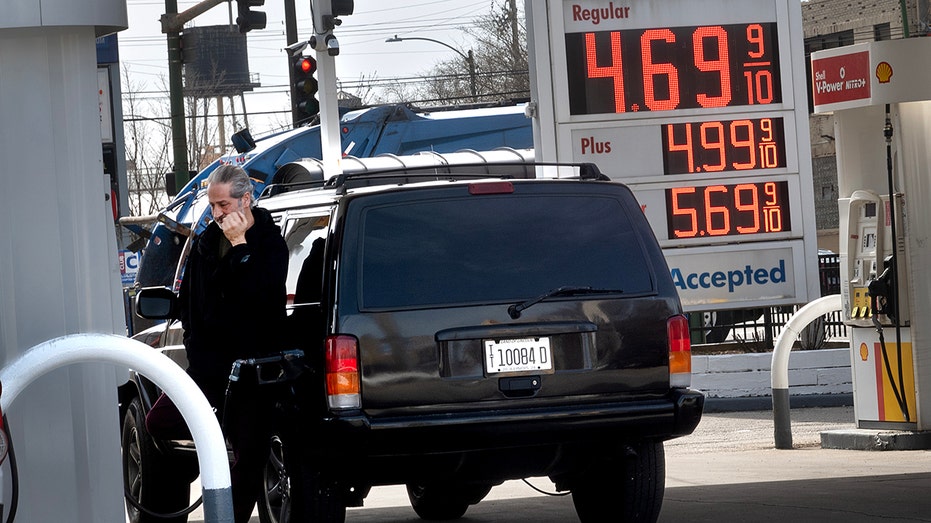Former Kansas City Federal Reserve Bank President Thomas Hoenig reacts to Jerome Powell saying the Fed is not ready to start cutting rates on ‘Cavuto: Coast to Coast.’
A closely watched inflation report due Wednesday is expected to show that progress in fighting price pressures within the economy slowed again in March.
Economists expect the consumer price index, which measures a range of goods that includes gasoline, health care, groceries and rent, to show that prices rose 3.4% in March – up from the 3.2% reading recorded the previous month.
On a monthly basis, inflation is seen rising 0.3%, which is down slightly from the 0.4% figure recorded in February.
“The March CPI and PPI reports will likely show another month of hot inflation,” Comerica Bank economists said on Monday. “Gasoline prices rose again in March as OPEC+ producers extended supply cuts, the Middle East conflict threatened to broaden, Ukraine attacked Russian refineries, and U.S. crude production leveled off near a record high.”
WHY ARE GROCERIES STILL SO EXPENSIVE?
Other parts of the report are also expected to point to a slower retreat in inflation. Core prices, which exclude the more volatile measurements of food and energy, are projected to climb 3.7% annually. That figure is down slightly from the 3.8% headline gain in February, suggesting that underlying price pressures remain strong.
The Federal Reserve’s target rate is 2%.
“We don’t have the tailwind of falling oil and gasoline prices that we had late in 2023 when we saw notable and sustained easing of inflation pressures,” said Greg McBride, chief financial analyst at Bankrate. “So far in 2024, the progress has slowed, and especially with oil prices rising to a 5-month high, expectations of the date and number of Fed rate hikes has been scaled back.”
US ECONOMY ADDS 303K JOBS IN MARCH, MUCH STRONGER THAN EXPECTED
The central bank is closely watching the report for evidence that inflation is finally subsiding as policymakers try to determine when to cut interest rates and by how much.
Policymakers have opened the door to cutting interest rates this year, but they have pushed back against the market’s aggressive expectations. Fed Chair Jerome Powell said last week while testifying on Capitol Hill that policymakers are on track to cut interest rates sometime in 2024, but are not ready to do so until they are confident inflation is tamed.

Gas prices are displayed at a gas station on March 12, 2024 in Chicago. (Photo by Scott Olson/Getty Images / Getty Images)
“While the Fed was hesitant to read too much into back-to-back months of higher-than-expected inflation data, a third month may lead them to change their tune,” said Chris Larkni, managing director, trading and investing, at E*Trade.
Central bank officials are also taking into consideration job growth and consumer inflation expectations when setting monetary policy.
GET FOX BUSINESS ON THE GO BY CLICKING HERE
Inflation has created severe financial pressures for most U.S. households, which are forced to pay more for everyday necessities like food and rent. The burden is disproportionately borne by low-income Americans, whose already-stretched paychecks are heavily impacted by price fluctuations.
While inflation has fallen from a peak of 9.1%, when compared with January 2021 – shortly before prices began to spike – the consumer price index is up a stunning 18.49%.



